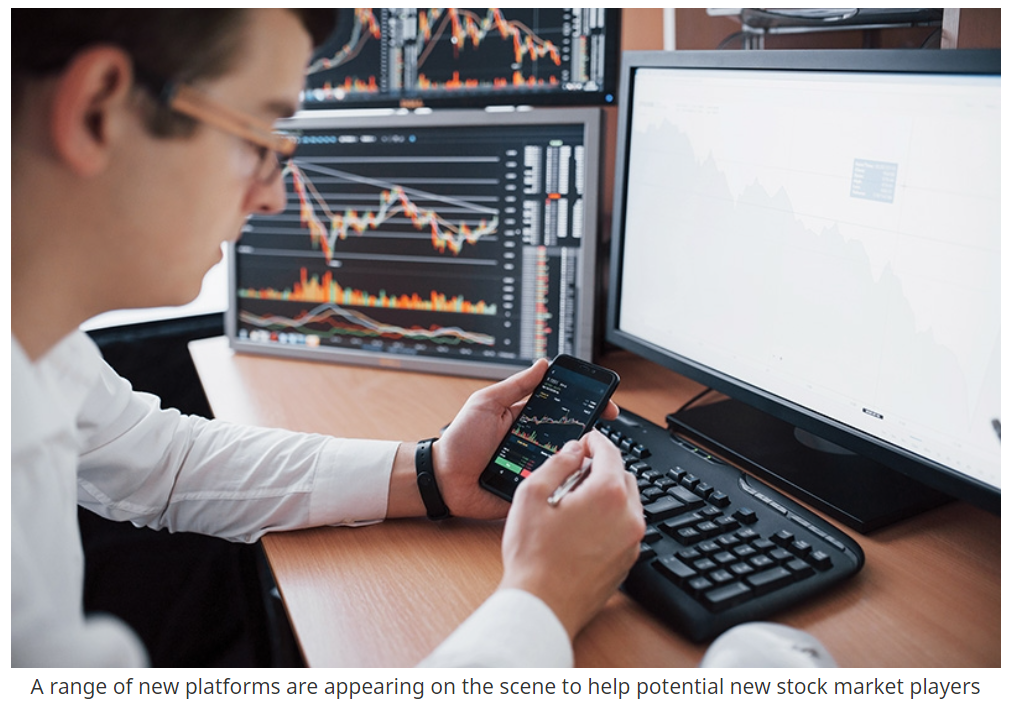Vietnam: Online investment apps offering choice and clarity
The stupendous surge of retail investors across the globe has prompted digitally-led investment applications and online platforms to develop, as they look to automatically optimise their passive indexed portfolios.
Newly-minted domestic investment app Infina successfully last week closed an oversubscribed $2 million seed round with the participation of international investors including Saison Capital, Venturra Discovery, 1982 Ventures, 500 Startups, Nextrans, executives at Google and Netflix, and other angel investors.
Infina is the latest to join tech-enabled investment apps across the region, which has seen capital pouring into China’s Futu, India’s Groww, and Indonesia’s Ajaib and Stockbit.
Elsewhere, Finhay – a Hanoi-based wealth management platform that helps millennials micro-invest in mutual funds – automates techniques that best fit the investment appetite of users. Finhay’s investments could consist of a portfolio of stocks, bonds, or other securities, in which users can start from just VND50,000 ($2.20).
In May, Finhay entered an agreement with foreign bank CIMB to issue a co-branded card on the app, which has given birth to the country’s first-ever 3-in-1 bank account that can be opened and maintained straight from the Finhay app.
Last year, the app raised an undisclosed seven-digit package with Jeffrey Cruttenden, co-founder of US savings app Acorns, as a major investor in the round. Local brokerage firm Thien Viet Securities was also among the other investors in the capital raising.
Previously, MoMo also teamed up with local lender TPBank to deploy a post-paid package allowing e-wallet users to borrow on the app. The trend of financial institutions shaking hands with fintech is increasingly strong.
Vietnam boasts great potential for retail investment opportunities. The population, more than 75 per cent of whom are internet users transacting money digitally, contains roughly 3.14 million who invest in stocks, or 3.2 per cent. While capital investment penetration remains relatively low, it is three times higher than neighbour Indonesia with roughly 1 per cent penetration – and the number is growing, especially among millennials.
Data from Vietnam Securities Depository Centre showed that in the first five months of this year, approximately 500,000 trading accounts were opened, equivalent to a 20-per-cent record jump against the figure for last year.
Expanding fintech
The unprecedented surge in capital market participation results from a combination of factors prompted in part by the pandemic: increasing digital adoption during various stages of lockdowns, emerging interests in diversified asset portfolio to hedge against post-pandemic uncertainty, and a series of interest rates cut by the State Bank of Vietnam which shied people away from term deposits to look for higher returns elsewhere.
In light of the rapid development of digital economy, Vietnam has witnessed a growing number of fintech apps that provide online accumulation and investment features. Tikop is a mobile-based wealth management platform that helps connect users to financial products safely and effectively. Currently, the app is linked to a number of reputable financial institutions in the market.
Tikop not only guarantees customer savings and investment, but also offers numerous benefits. Customers can make a minimum deposit of VND5,000 (22 US cents) into Tikop and enjoy compounded interest rate of 6.8-9 per cent per year. In particular, users can flexibly deposit and withdraw both principal and interest at any time.
Meanwhile, Stockbook is a mobile-based application that allows investors to search and find trends in stock markets. The app helps the user to quickly connect with investment experts and products. It also helps to learn to invest by trading virtual securities, reading news articles, and experts guidance.
Algo Platform is a tool that allows investors to search and analyse Vietnam’s stock market. It helps to find effective investment opportunities and provide timely advice to customers and investors. The platform supports the user to create reports and trading formulas, back-test, and observe real-time trading signals. Meanwhile, Entrade is a trading platform that enables investors to exchange their financial assets such as bonds, equities and valuable papers.
A decade ago, it was normal to request clients to have a large lump sum to invest with. However, this should not be a thing due to a strong development from technology.
Experts believed the barrier to entry is a deterrence of investing; hence, it limits retail investors to actually do so. Lowering the barrier to entry would see the incoming flow of retail investors.
However, not all investment apps and robo-advisors are safe to trust. In 2020, Smartly – a Singapore-based automated-advisor – decided to shut its doors, citing intense rivalry in the digital investment advisory space. The decision to close Smartly was made by Vietnamese fund VinaCapital, which took it over in 2019. Due to harsh competition and increasing operating costs, VinaCapital was no longer willing to invest money into the platform.
Opting in
Analysts have predicted that the micro investment will shape up the smart investment app boom. Different asset classes will be required to be broken down into smaller units to meet with the demand. Small units mean it is affordable for retail clients. For example, real estate investment can be packaged in a fund unit, instead of buying one piece of land. However, the context applies to real estate for investment purposes, but not residential purposes.
Tran Duc Anh, head of Macro and Market Strategy at KB Securities, assessed that the local stock market’s upside is positive for the second half of 2021, reaching 1,480 points with driving forces coming from the upbeat performance of list companies.
Elsewhere, market watchdog suggested retail traders should try investing in mutual funds. Paying those fund managers, a small fee (most are less than 2 per cent) is worth it. Many funds’ performance has been faring well, some reaching over 40 per cent annual growth.
Source: VIR


 English
English




